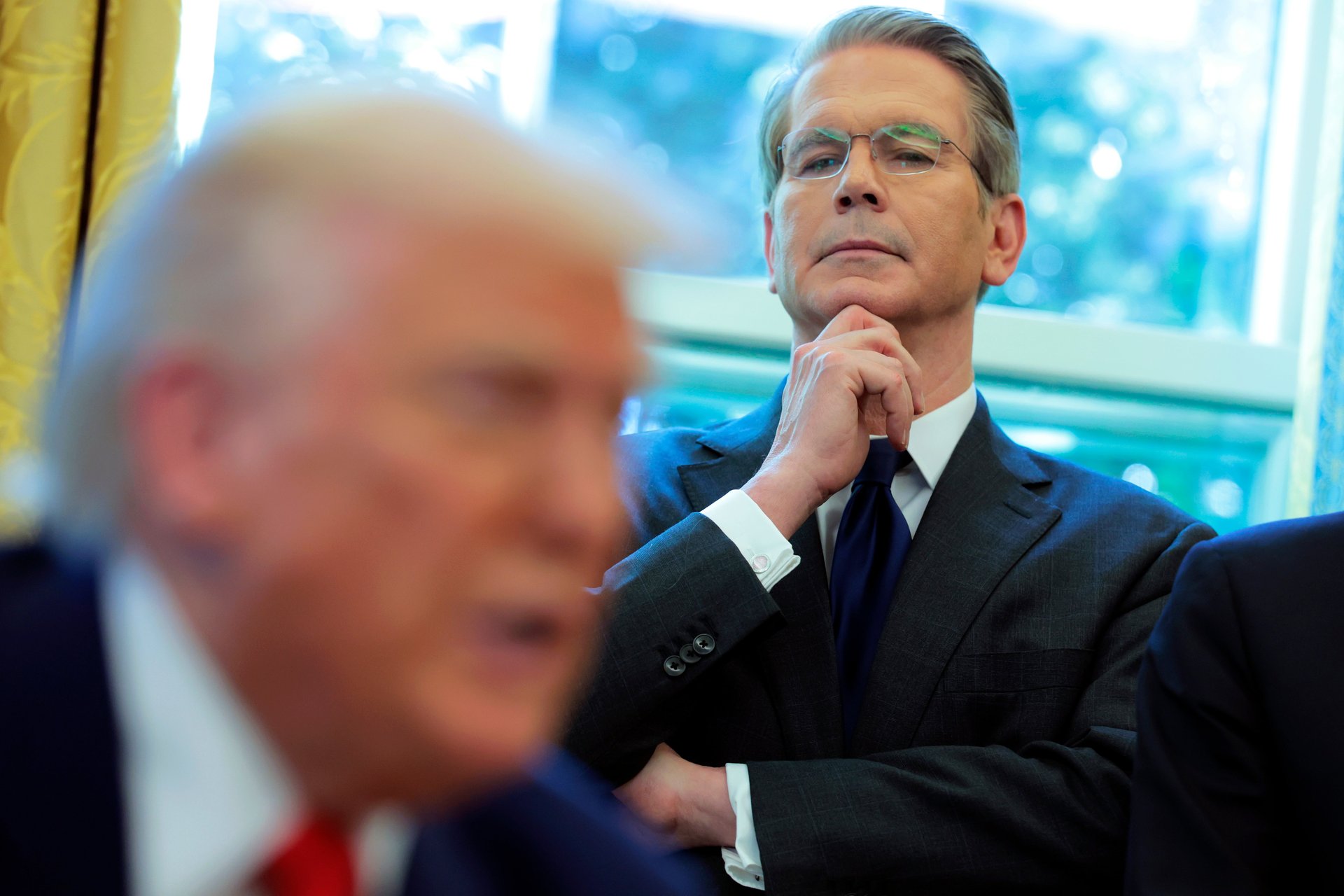Trump official says China needs to de-escalate trade tensions that Trump escalated
Treasury Secretary Scott Bessent said the burden of tariff negotiations falls largely on China's shoulders

Treasury Secretary Scott Bessent said Monday that China needs to de-escalate the U.S.-China trade war — of which President Donald Trump has largely stoked the flames.
Suggested Reading
“I believe that it’s up to China to de-escalate, because they sell five times more to us than we sell to them,” Bessent said during an interview on CNBC (CMCSA). “So these 120%, 145% tariffs are unsustainable.”
Related Content
Both countries have imposed reciprocal tariffs on each other, but the back and forth can largely be traced back to Trump’s April 2 “Liberation Day” announcement of heavy tariffs. While he paused many of those duties, he implemented even heavier tariffs on China, and the two countries have been trading levies since. At the moment, the U.S. has a 145% duty on Chinese imported goods, while China has a 120% levy on goods imported from the U.S.
The two sides are either negotiating or not talking at all, depending on who you believe.
On Friday, Trump said he has spoken to his Chinese counterpart, Xi Jinping, “many times” to negotiate tariffs. But Chinese officials said that was “fake news.” Chinese Ministry of Commerce spokesperson He Yadong told reporters Thursday, “At present, there are absolutely no negotiations on the economy and trade between China and the U.S.”
The Trump administration has signaled willingness to negotiate with foreign governments on tariffs. Bessent said earlier on Monday that a deal with India is pending and that deals with other countries will follow.
Chinese officials have signaled that their economy won’t be significantly affected by the trade war. Zhao Chenxin, the vice head of the National Development and Reform Commission (China’s state planner), said the country remains confident that it will hit its 5% economic growth target this year, according to the Xinhua News Agency.
And China has reportedly figured out workarounds for certain imported goods. In remarks reported by Bloomberg, a top official from the country’s state planner told reporters last month that the country’s supply of grain, feed, and oilseed imports won’t be affected by the tariffs because of abundantly available substitutes around the world and in China.
Meanwhile, the U.S. economy could soon get hit hard by Trump’s tariffs. A Goldman Sachs (GS) report said Chinese goods to the U.S. will contract by two-thirds this year if the tariffs stay at their current levels — with communications equipment, apparel, and chemical product sectors the most vulnerable of the manufacturing sectors.
Gary Cohn, Trump’s former chief economic adviser during his first time, said in a CBS (PARA) interview on Sunday that he thinks the effects of the tariffs on China will start rippling through the U.S. economy by late May. He also warned that these tariffs are “highly regressive,” meaning they’ll disproportionately affect lower-income Americans who spend a greater share of their income on basic goods.
Americans have increasingly turned against the president’s tariffs. Trump’s economic approval rating has fallen sharply, and about 60% of U.S. adults think his tariffs have gone too far, according to a recent AP-NORC poll. (Three in four think his trade policies will hike the prices of consumer goods.) As a result, some U.S. shoppers went on a big-ticket-item spending spree to try to beat price hikes.